10 tips to plan your trip to Cuba
For years world travelers have been able to visit Cuba without worry. Not so for Americans. For us, our ability to travel relatively freely to Cuba has only been allowed since December 2015 when then President Obama lifted the travel restrictions to the tropical island. Now, the eager masses want to know more about how to go about getting to Cuba.
I’ve got you covered!
For starters, it’s a good thing to know the general overview of the historic agreement that thawed the relations between the two formerly antagonistic countries. The White House thanked Pope Francis for laying the groundwork for the U.S. and Cuba to even meet. The new normalized relations means America has reopened its embassy in Havana. Travel and Trade restrictions have relaxed which allows US citizens and goods greater access to Cuba. American and Cuba also traded alleged spies formerly being held by each country including American Alan Gross who had been held on allegations of espionage.
1. 12 Ways into Cuba Without Sneaking in
If you’re American your visit needs to fall under 1 of 12 government sanctioned categories:
(1) family visits;
(2) official business of the U.S. government, foreign governments, and certain intergovernmental organizations;
(3) journalistic activity;
(4) professional research and professional meetings;
(5) educational activities;
(6) religious activities;
(7) public performances, clinics, workshops, athletic and other competitions, and exhibitions;
(8) support for the Cuban people;
(9) humanitarian projects;
(10) activities of private foundations or research or educational institutes;
(11) exportation, importation, or transmission of information or information materials; and
(12) certain export transactions that may be considered for authorization under existing regulations and guidelines.
Thankfully the categories are broad enough that everyone should be able to find an appropriate category. Primarily your trip will probably be under five, six, seven, eight or nine. Sure you may gripe or groan about this extra hoop, but considering the alternative we had before you can see the benefit. Even better you can create your own “people-to-people” trip which includes cultural interactions with the Cuban people one on one. Just write up a schedule of your trip that includes the activities you plan.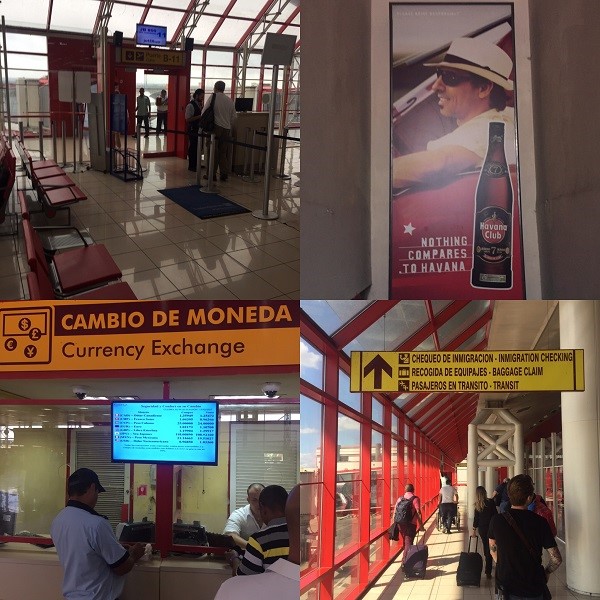
2. Straighten Up & Fly Right
Find your Flight! So, now that travel is open, you’ve gotten the right category to visit and now you need a way to get there. The fastest and easiest way is to book your non-stop flight from the U.S. to Cuba.
One thing to keep in mind is that you need a visa to enter Cuba. When flying from the United States, on one of the airlines permitted to fly to and from Cuba, the airline should have worked out a system to get the visa into your hands. However, each airline may have a different system in place. For example, Jet Blue allows me to purchase the visa at the “gateway airport” (the final airport before arrival in Cuba) for 50 USD. However, not all airlines are the same. Be sure to contact your airline to determine if you can purchase the visa at the gate, online & print, or through regular mail. You don’t want to end up stuck! As a quick reference:
American: $50 Buy Online & mailed to you
Delta: $50 Buy at Gate
Frontier: $110 Buy Online & mailed to you
JetBlue: $50 Buy at gate
Southwest: $50 Buy online & pick up at gate
United: $75 Buy at gate
3. Insure Yo’self
From all my research I’ve learned that yes you’re supposed to have (non-American) medical travel insurance before you land on the island. However, my scouring of blogs, articles, and news reports reveals that this is hardly ever checked. So, you could go without and see what happens. At most you’ll be asked to purchase Cuban Health insurance at the Havana airport. Helpfully, some airlines include the cost of insurance with your ticket, but not all do. Check with your airline. Of course, alternatively, you could go for peace of mind and purchase world travel insurance before your trip.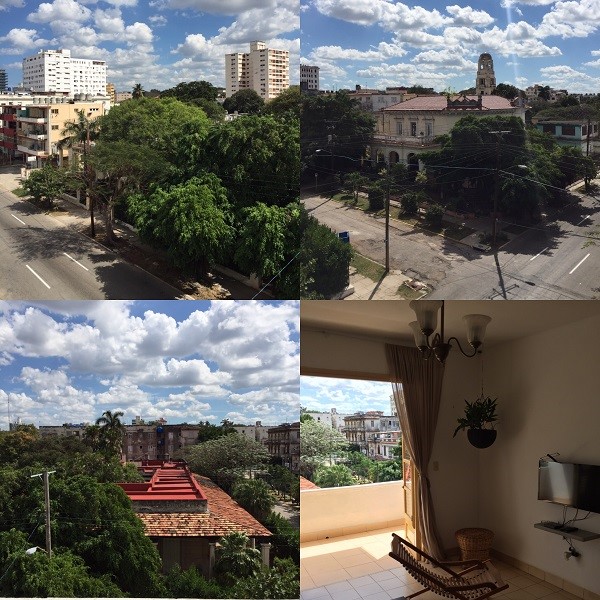
4. Hotel, Motel, Holiday Inn? Nope!
Yes, you can find high end hotels and resorts in Cuba. However, from everything I’ve researched you’ll be hard pressed to compare the quality you’d find back home to what you’ll experience in Cuba. To that end I suggest you follow suit and do what I did: use AirBnB. You see the majority of accommodation in Cuba relies on “casas particulares” which are basically like guesthouses or a homestay in someone’s home. Sound familiar? Yup, that’s exactly what AirBnB does. It’s a match made in heaven that has made finding a place to stay throughout Cuba so much easier than I thought it would be.
My routine is to scout out the areas of a city that I would like to stay in the most. In Havana, for example, that meant the neighborhood of Vedado. Next, I started going through the listings that met my price range. Then, it’s a matter of reading through the reviews for each spot. I targeted only places with a high number of reviews to weed out any potential problems with cancellations or the facilities not living up to what’s posted in the listing. Those reviews cover everything you would want to know so be sure to check them thoroughly! When you’ve settled on a spot, complete your booking and voila! You’re done! I did that for Havana and Trinidad and will report back on those.
As a perk be sure to look for a “casa particular” that offers a breakfast, lunch or dinner option. Usually this will be only a few dollars for a delicious home cooked meal. From going through the various listings you can book places from as low as $10 USD per night to $600 USD.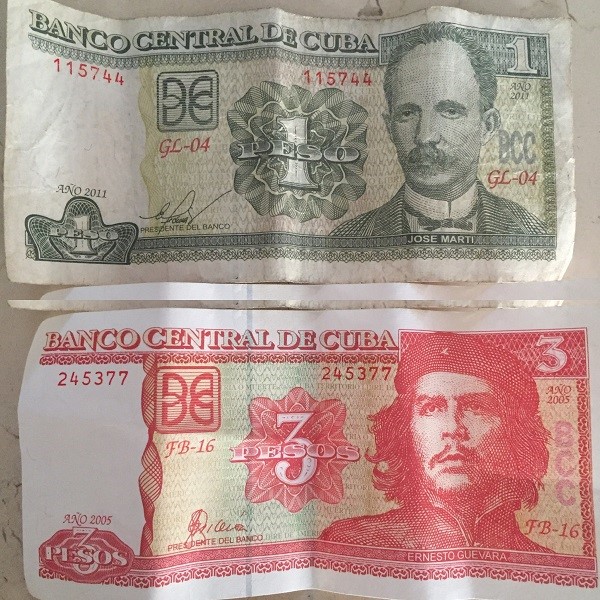
5. Mo Money, Less Problems
When it comes to money in Cuba cash is king. For Americans our credit and debit cards will be useless if they’re issued by an American bank. So, we’re reduced to using cash to hand all of our transactions in the country. One thing to keep in mind when changing money in Cuba is that they use two distinct currencies.
The Cuban Convertible Peso (CUC) is used for tourists and is tied to the American Dollar. When you exchange money this is the currency you’ll receive. It’s also the currency used by the majority of restaurants, shops, hotels, museums and other businesses you’ll most likely be dealing with. When you tip, tip in CUC.
The Cuban National Peso (CUP) is the local money used by the Cuban people. It’s worth having a few of these on hand as you can use them to buy street food, bottled water, drinks and the like. However, it’s worth noting that the National Peso is valued a lot less than the Convertible Peso as you can see below.
$1 USD = 1 CUC = 25 CUP
So when you get your change back be sure you are getting the correct currency. With budgeting my trip I settled on $50 USD per day. Bear in mind that I am not factoring my accommodation costs into this as I have already paid for that separately on AirBnB. So your budget may fall anywhere between $40 to $100 USD. Also keep in mind that the Cuban Government charges an extra 13% to exchange USD. I’m contemplating bring CAD so that I can avoid this entirely. You could also try British Pounds or the European EURO.
Also keep in mind to stash at least 50 CUC to travel from and to the Havana airport by taxi. Then do your best to stick to your daily budget because once that cash is gone you’re in big trouble. Bring more than you need to be safe. If you run out, you’re out of luck! Remember to exchange your left over CUC back into USD before you fly out of Cuba unless you want to give away your Cuban Dollars as a nifty souvenir.
6. Internet Detox
If you’re addicted to the internet you may find yourself fiending for a hotspot in Cuba. The one internet service provider, ETECSA, controls the market and have opened 54 wi-fi hotspots throughout Havana and other major cities in Cuba. However, first you need to buy their wi-fi card. You can do this at the airport for about 4.50 CUC / $4.50 / £2.93 for a single card. That will get you one hour of internet service. Once you’ve gotten your wi-fi card you need to find a hotspot. Like I wrote above they’re littered throughout Havana. Keep an eye out for large groups of people all on their smart phones and laptops. Voila! Wi-fi zone found. Simply login with your card and you’re all set to go. Alternatively you could hit up one of the larger hotels that often have their own internet service for purchase. You may have to be a guest of the hotel, but if they ask you no questions then you tell no lies. Also keep in mind that the strength of your wi-fi connection may not be terribly strong unless you use it during the wee early hours of the morning or when it’s very late.
With Wi-fi being not so accessible I plan on minimizing my need for it. All the necessary info online I may need I plan to copy to my notes app. Voila! Info easily available without the hassle of having internet access. I could also just print everything I need such as itineraries, guides, maps, etc before I leave the States!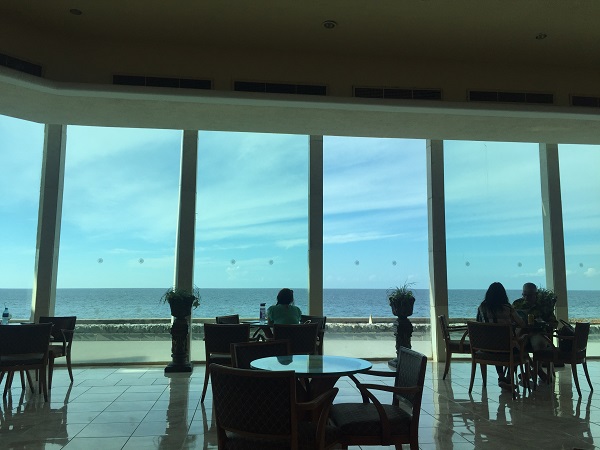
7. Free Your Mind
Going with the flow has to be the mindset you have when travelling to Cuba. After a decades long embargo as well as communist rule, Cuba’s infrastructure and economy aren’t comparable to other Caribbean islands let alone the United States. This means you must manage your expectations. Steel yourself for the inevitable changes, interruptions, cancellations, delays, out of stock items, and things just not generally working. What does this specifically mean? Well, your plumbing may not be working quite right in your “casa particular”. Your hotel reservations you made may have been inexplicably cancelled or changed to something totally different than what you signed up for. Expect brownouts and possibly even an occasional blackout. When nature calls and you need a public bathroom expect to pay but do not expect to find any toilet paper. Will the bus breakdown? Maybe yes, maybe no. Will that restaurant have the full menu ready to order? Probably not, but maybe! The bottom line is to roll with the punches like Creed dodging Rocky’s blows. Expect the unexpected and you’ll be dandy.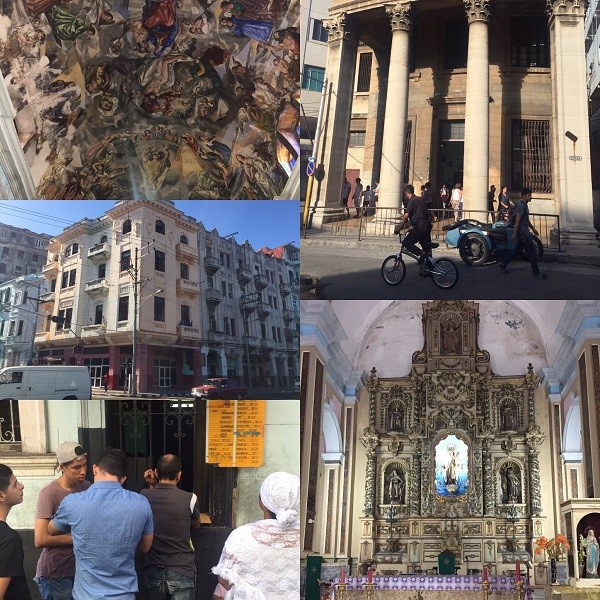
8. Groups Do it Better
Planning a solo trip can be done though at some point why not ponder the ease and sense of security of leaving the details in the hands of another? An organized group tour makes everything so much easier especially for a first time visit to Cuba. Doubly so if you cannot speak Spanish and find dealing with situations not running smoothly worrisome. An organized tour means you really only have to deal with getting yourself to the departure airport because everything else has been done for you. Take Globe Drifters for example:
What is not included:
- 8 nights accommodation in casa particulares (double occupancy, breakfast included)
- Private Cuban guide throughout
- Private transportation in air-conditioned vehicle
- Activities as noted in itinerary
- Meals as indicated in itinerary : All breakfasts, 6 lunches, 5 dinners
What is not included:
- 2 lunches and 3 dinners
- Airport transfers
- Gratuities
- Alcoholic beverages
- Souvenirs
- International flight and tourist card
- Supplementary insurance
The benefits of a group tour primarily means piece of mind. Your tour operator should have solid connections with hosts of casa particulars, restaurateurs, attraction operators, guides, and transportation services all facilitate not only a more comfortable and stable experience but also one steeped in personal relationships. You won’t have to wander the streets in search of a spot for an authentic Cuban meal at a reasonable rate. You don’t have to stop and stare at historical monuments with absolutely no context. Bonus points? You’ll bypass the scam artists eyeing up tourists as their next mark. Still, though, when the unexpected happens, which it will, at least you’ll have a native guide that knows how to navigate the circumstances and transform a potential tragedy into a triumph.
9. Essential Items To Bring To Cuba
Wherever your travelling you’ll need a certain few essential items that prove to be indispensable. This is never more true than when heading to Cuba! Beside the tried and true items like passports, itinerary, smart phone, phone charger, socks & accessories and
- Protection: Sunscreen, Sunglasses & condoms oh my.
- Cash
- Wet Wipes & Tissues ( for the bathroom not your nose)
- Prescriptions
- Travel Pack Toiletries (shampoo, deodorant, toothpaste, etc)
- Airy Clothing
- Mosquito Repellent (did you say Zika?)
- Food Poisoning/Diarrhea medicine
- Sriracha chili Or Tabasco sauce: Like Beyoncé advised… “I got hot sauce in my bag / swag“
- Adapter: The electrical current in Cuba is mostly 110 volts AC (the same as in the U.S.) however some buildings also have 220-volt AC current.

10. Gifts For the Locals
A great act of kindness that lots of tourists do is bringing something for the locals. Small tokens of affection for local school children and even adults such as neighborhood shop keeps, vendors, or your casa particular host goes a long way of enamoring you to their affections. It’s the little things that make the difference in Cuba. Small items that we take for granted are very much appreciated on the island. What sort of things you ask?
- Toothbrushes, Dental Floss, & Toothpaste.
- Conditioner, Shampoo, & Body lotion.
- Female hygiene products
- Mouthwash.
- Beauty products such as Face Masks, Moisturizer & Makeup.
- Towels, Sheets, & Wash Cloths.
- School Supplies for kids: notebooks, pencils, pens, sharpeners, & erasers
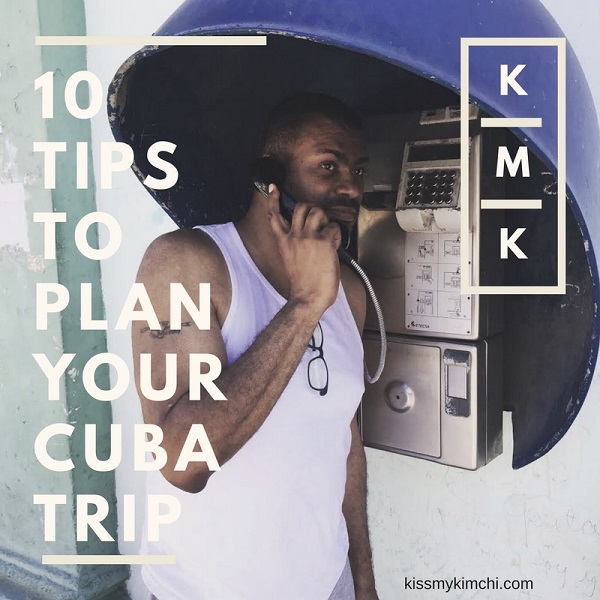
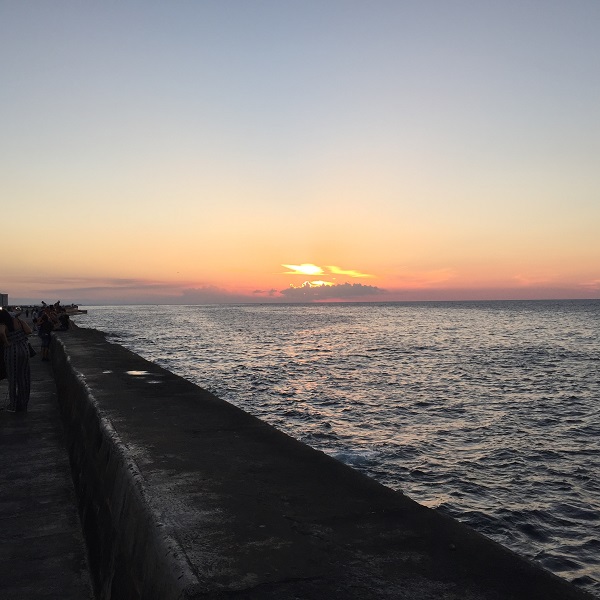
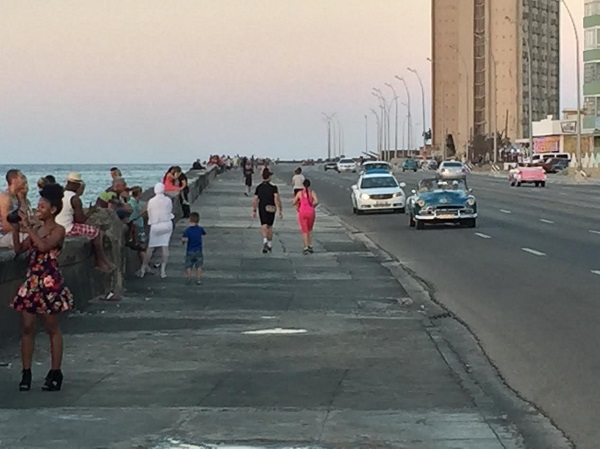
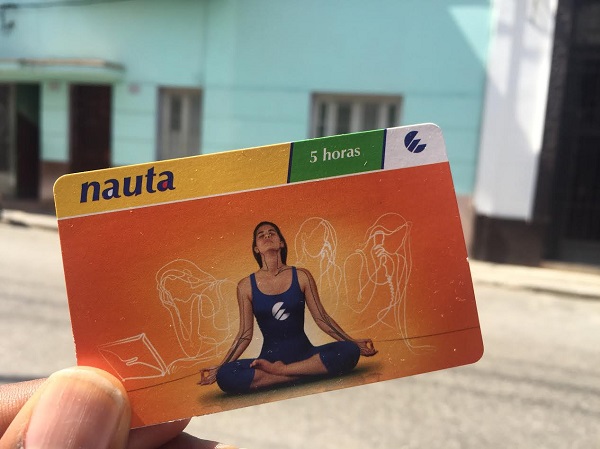
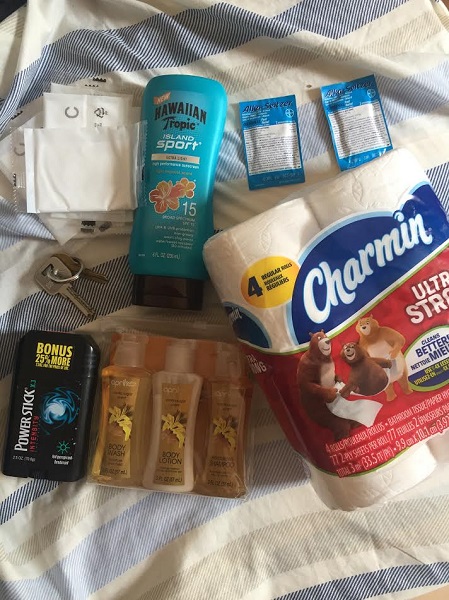
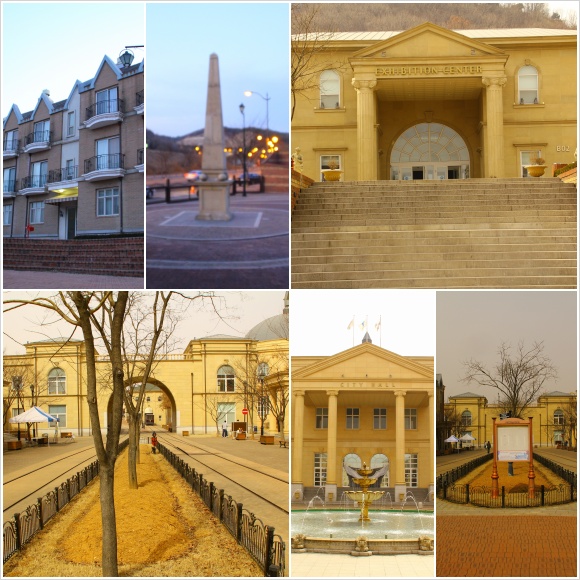
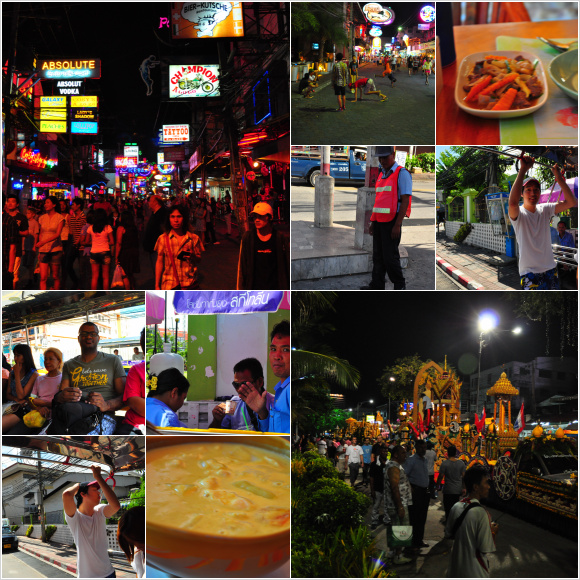
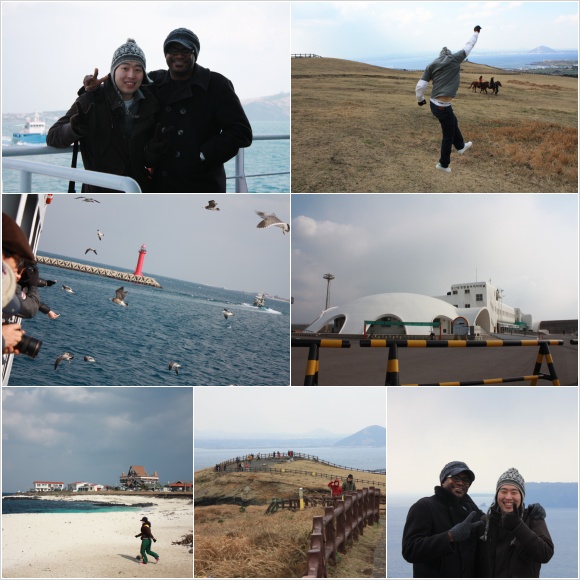
This post is awesome. Cuba has definitely been on my list for some time but since I’ve been living in Korea it probably won’t happen any time soon at least not until I’m living back in the US. So happy that travel ban was lifted.
You know what? That’s what I thought too but then I just decided to go ahead and do it! I had two weeks off and just flew out of Seoul into Fort Lauderdale and then jumped on a jet blue flight straight to havana! Just go for it!
This one of the better roundups of Cuba, I’ve seen! I’m hoping to visit next spring and I’ll be backtracking to your blog! How did you like the food? I’ve heard mixed reviews.
I’m glad you liked it! To be honest the food, while fresh, did not overly impress. It’s hearty and well prepared, but I like a bit more spicy and kick to my food. Still the fresh fish was nice, but it’s simple fare. The alcohol has never been better so there’s that!
So desperate to visit Cuba! Looks like such a vibrant and colourful place. Awesome guide and tips, you’ve got everything covered – I had no idea about some of the things you mentioned. Thanks for sharing this, it will come in handy for when I eventually make it to Cuba! 🙂
You’re going to love every minute. Even the minutes you spend waiting while something is broken down. Just order a mojito and enjoy!
Cuba!!! This beautiful island has been on my bucket list for a while. Ever since I started listening to Buena Vista Social Club and watched the documentary, I knew I must visit this place. But I have yet to make it! I was really hoping to visit before it opened up as I have a Mexican passport, so entering would have been no problem, but now that it’s fully open to Americans, I’m worried by the time I make it (2-3 years from now), the charms of an untouched haven will be gone 🙁 I hope that’s not the case but we shall see. When did you visit? Did you go directly from SoKo or are you back in the US?
I flew from SOKO to Fort Lauderdale and then took another plane to havana. i suggest going as soon as you can because even now the island is changing. Best to see how it changes than to see the end result!
This is invaluable and insightful information, Brian. Thank you! Since opening up travel from the States, I’ve been dreaming for going to Cuba before tourism changes it and that undeniable charm is lost/altered. I’m still picking through all of your suggestions and writing them into a “advice” document I have for specific countries. This is really thorough, so thank you! You’ve not only given some really great tips, but squeezed a very nice glimpse of Cuba into your guide.
You’re going to love every minute when you go. The biggest thing was to have patience in regards to things we usually take for granted. Once you’re in that mindset the trip will be one of the greats.
Cuba is one of my fave places to visit (I’m your neighbour to the North lol). Every time I go it keeps getting better. I hope I can visit again soon as it’s been a while since I’ve been there last. I always bring toiletries for the maids as it’s hard to get these items in their country.
They really did appreciate the small items like toiletries. The people in Cuba were really wonderful. I can’t wait to go back!
Brian, I think you meant to say that some things are included in the group tour and others are not, otherwise nothing is included. What?!? haha its cool. I had no idea they use two types of currencies, how confusing for a traveler, but definitely great to know to not bring USD as to avoid that pesky 13% charges. I like how you added gifts for the locals since I never really think about those things but I bet people really appreciate them (especially hygiene products for the ladies). The only thing – how do you go about giving those out without looking weird?! lol
Lol, yeah I need to update that now! The currency situation is so confusing. I think its best to use some peso for the little things like street food and supermarkets. Everyone else will give you the side eye if you try to use it. My brother brought chocolate and candies for the local school kids and children. He would just give it to their parents or a teacher and let them sort it out. For the more adult oriented gifts perhaps to tour guides or the staff at an airbnb.
Interesting, you covered everything! I like solo traveling, but based on what you write, I guess I’ll avail the group tour because it’s safer. I didn’t know that their currency is called peso. We also use peso in Philippines. 🙂
I’m hoping to hit up the Philippines for the first time this summer in August. There are some gorgeous islands I know will be amazing to see.